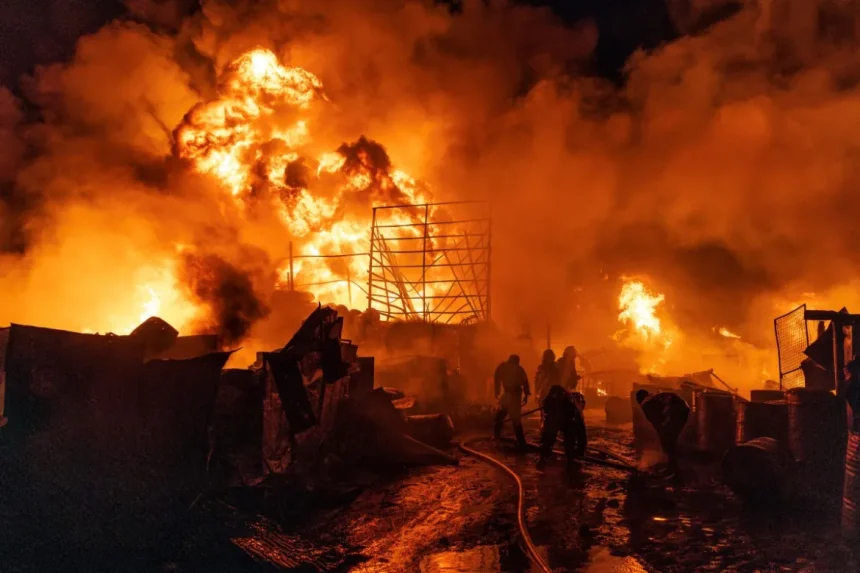A tumultuous inferno erupted over a Nairobi apartment block captured through the lens of 19-year-old Philip Awinyo Jeremiah. What began as an ordinary night spiraled into pandemonium as the footage swiftly went viral across social media platforms.
The cataclysmic explosion triggered by the rupture of liquid petroleum gas cylinders within an illicit depot left behind a scene reminiscent of a war zone. Tragically, it claimed the lives of at least three individuals and inflicted injuries upon 280 others, with 24 in critical condition.
Awinyo, a young student navigating university life unexpectedly found himself thrust into the role of a citizen journalist. His footage ignited widespread discourse about the aftermath of the catastrophe. It brought to light the dubious practices of the depot’s owner who had previously skirted regulations despite facing two demolitions and continued illegal operations. This raised troubling suspicions of corruption within the regulatory framework.

For the residents of Nyayo Estate, the incident was a grim validation of their long-standing grievances regarding the pervasive odor of gas and the compromised safety within their community. Their complaints had fallen on deaf ears until the tragedy struck.
The Petroleum Institute of East Africa’s revelation of a lenient sentence for the depot owner starkly contrasted with the precedent set by the High Court. Moreover, it exposed the involvement of improperly released gas tankers in exacerbating the explosion’s impact.

This calamity served as a poignant reminder of the formidable challenges in enforcing regulations effectively. Accusations of bribery against county government officials underscored the systemic failures that allowed such illegal and hazardous activities to persist unchecked. The incident catalyzed a critical examination of the authorities’ capacity to uphold safety standards and exercise proper oversight in the face of rampant lawlessness.








